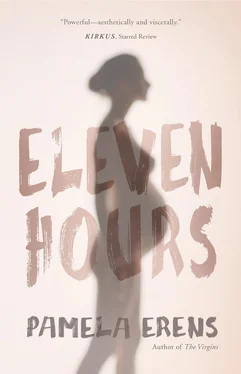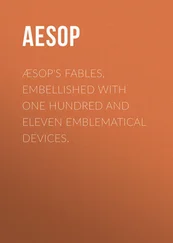Pamela Erens - Eleven Hours
Здесь есть возможность читать онлайн «Pamela Erens - Eleven Hours» весь текст электронной книги совершенно бесплатно (целиком полную версию без сокращений). В некоторых случаях можно слушать аудио, скачать через торрент в формате fb2 и присутствует краткое содержание. Год выпуска: 2016, Издательство: Tin House, Жанр: Современная проза, на английском языке. Описание произведения, (предисловие) а так же отзывы посетителей доступны на портале библиотеки ЛибКат.
- Название:Eleven Hours
- Автор:
- Издательство:Tin House
- Жанр:
- Год:2016
- ISBN:нет данных
- Рейтинг книги:4 / 5. Голосов: 1
-
Избранное:Добавить в избранное
- Отзывы:
-
Ваша оценка:
- 80
- 1
- 2
- 3
- 4
- 5
Eleven Hours: краткое содержание, описание и аннотация
Предлагаем к чтению аннотацию, описание, краткое содержание или предисловие (зависит от того, что написал сам автор книги «Eleven Hours»). Если вы не нашли необходимую информацию о книге — напишите в комментариях, мы постараемся отыскать её.
Eleven Hours
Eleven Hours — читать онлайн бесплатно полную книгу (весь текст) целиком
Ниже представлен текст книги, разбитый по страницам. Система сохранения места последней прочитанной страницы, позволяет с удобством читать онлайн бесплатно книгу «Eleven Hours», без необходимости каждый раз заново искать на чём Вы остановились. Поставьте закладку, и сможете в любой момент перейти на страницу, на которой закончили чтение.
Интервал:
Закладка:
Julia shrugged.
“But I like it,” Lore added honestly, meaning the painting. It captured something for her, something about her own mother, maybe — not what her mother might have gone through in labor so much as what she had gone through raising her on her own. Her mother had cared for her, but there must have been times when she’d felt she was being split open by the burden, that she was struggling to expel an ugly, indistinct scream.
“Do you? I’ll give it to you.”
Julia had never offered her a painting before. Never again would she. Yes, yes, she would take it, said Lore, thrilled.
Asa protested. He didn’t like the painting, he confessed, and he returned to his argument about not having Julia’s things in the apartment. Lore badgered him to give it a chance for a week or two. They tried hanging it in the living room, the bathroom, finally the bedroom. Asa held it to the wall yet another time. His eyes met Lore’s, and then both of them broke out laughing, laughing so hard that Asa dropped the picture on the floor and Lore had to go get tissues for her eyes: there was no way that this painting could ever hang in their bedroom or for that matter anywhere else that belonged to them. It was simply too disturbing — too Julia . Without further discussion, Lore wrapped it in brown paper and stashed it in the hallway closet. When she moved out of the apartment, she spared it, left it resting neatly in its place against the closet wall. Even in her rage she could not damage one of Julia’s paintings. Julia’s soul resided in them; it would have been worse than a bodily murder.
Would Julia and Asa ever have a child themselves? Just weeks ago Lore would have called it impossible; Julia had neither the desire nor the stability. But nothing is truly impossible; every day makes Lore understand that more clearly. A child can travel down a three-centimeter-wide canal and emerge from an opening even smaller. Lore could one day decide to tell Asa the truth about Soleil, the truth he surely already knows. Not for his sake but for Soleil’s. Although …
Franckline’s voice rises up behind her. “You’re leaking a little blood. I was watching to see if it would stop, but it’s been going on for a few minutes. I’d like to get you onto your left side, okay? It improves the oxygen flow to the baby.”
“Why? I mean, what could that be from?” asks Lore, her throat constricting.
“I don’t know.” Noises behind Lore, Franckline moving about.
“How much is a little? A little-little? Or more than that?”
“If it continues we’re going to want to put an IV in,” Franckline says, as she helps reposition Lore on the bed. Without asking, she is attaching the stretchy bands of the fetal monitor. Franckline’s failure to answer Lore’s question makes Lore’s stomach go washy with anxiety. “Just to keep you hydrated,” Franckline continues, “while we figure out what’s going on. It could be broken blood vessels from the pushing. I’m going to get the doctor now.”
Lore wriggles on her side to see if she can detect the blood, but her belly is in the way and she doesn’t want to contort herself out of position. She’s hot and a little faint. A psychological reaction, she tells herself: don’t let your imagination get going. A contraction arrives, too soon, and there is nothing to do but grip the tight bedsheet under her fist. Her finger throbs again. She moans as best she can, surrendering almost gratefully to the pain that will for a minute or two keep her from thinking or worrying. She fights to stay still. Movement, she thinks, could increase the bleeding. In some unspoken prayer she wills the blood to slow.
The resident slips into the room, the same one from this morning, Dr. Merchant (she catches his draft of energy and a glimpse of his fine hair before she sees his face). “Ah, yes, the Department of Education lady,” he says. “Sounds like a little excitement going on here. Let’s take a look.” He studies the paper that spits slowly from the monitor printer. Lore thinks he’ll make some comment about it, but he doesn’t.
He stretches on his gloves, then asks her to part her legs. He stops to lay a hand on her knee. “You must think we’re all sadists,” he says.
She clenches her teeth as he goes in — one more moment, one more moment, she repeats to herself, yet the doctor stays and stays. “Your water still hasn’t broken,” he says, and Lore feels vaguely reprimanded. The pressure of his fingers fills and then fractures every remaining private space, and she makes loud complaining cries that she knows will make no difference. “Seems normal,” he says, pushing deep one more time, then withdraws. Lore turns her head into her arm, panting. There is a heavy, wet trickling against her thighs. “Good news. You’re at eight centimeters. One hundred percent effaced, zero station. You’re going to have this baby this evening. I can’t say what the bleeding is, but we’ll be watching the monitor, and I’ll come back in a few minutes. Franckline, start an IV, and let’s get some oxygen ready, too.” To Lore: “Don’t do any more pushing, okay? You still have a little ways to go.”
Lore begins to ask about the oxygen — is it really necessary? Will they stick a mask over her face? Must they go ahead with the IV? But she doesn’t have time to say much, because she feels a new cramping, followed by a pain that doesn’t start somewhere like a quiet bass line, but is at its loud, crashing climax almost immediately. She hears herself yelling out. Something seizes inside, and her belly goes hard as rock. Her inner vision dims. Something falls on the floor with a ping, strangely audible amid her own cries (she hears herself as an echo rebounding from some distant, craggy surface). Hands move around her, gripping her shoulder, asking what is hurting, what is wrong? She does not know! She does not know! Oh, God, it does not stop! Her belly is stone. Someone struggles to hold her down.
“It’s okay, it’s okay,” Franckline says to Lore, who realizes in that moment that it’s not okay, that something very bad must be happening. She can’t figure out if sound is still coming out of her mouth. Hear me, hear me, please! Things start to happen very quickly: an unfamiliar voice, Dr. Merchant giving orders, a wad of something is pressed to her groin. Her bed detaches from its place, rolls out the door and down the hallway. Footsteps beating alongside. She is aware of a rhythmic pumping between her legs, like the glug-glug of shampoo coming thickly out of a bottle, and then a gush. People are calling out. She can’t catch her breath and she thrashes on the moving bed, but Franckline — she is sure it’s Franckline — holds one arm firmly and asks her to stay calm, the calmer she can be the better, they need to get her baby out. She’d like to be still but she can’t; the pain is in charge, filling her eyes with sparks.
The lights grow brighter and then dimmer again. People talking in some sort of gibberish. Fear, terrible fear, crashes in, worse than the pain, so that she yanks a mental curtain down against it in haste. I am not afraid . The light grows brighter than ever, the rolling bed halts abruptly, and Lore would not have believed that there was room inside to feel any more suffering, but now there is an agonizing intrusion, so intimate and so objectionable that her lungs burn with the screams she emits.
The body is not a solid thing but a sac of liquids netted with tendons and bones, of wriggling, dividing cells and traveling electrical pulses. It is prone to leakages and eruptions. It rocks on the tides of hormones. In the early weeks of Lore’s pregnancy, a group of cells divided off from the embryo and became the placenta, branched with blood vessels like a great flat leaf. Some error — neuronal or in the genetic coding or due to a harsh bump against the corner of a school desk, who knows — resulted, at thirty-two weeks, in a small piece of the placenta pulling away from the uterine wall. Lore never knew of it; the blood that leaked out was trapped between the rest of the placenta and the wall and did not flow down. As the child grew closer to being born, the placenta sheared away further, but the new blood too continued to be concealed, held in by the great amniotic sac. When Lore’s labor became advanced and the baby descended sufficiently in the vaginal canal, some of the trapped blood trickled out of her body. And when Dr. Merchant punctured the sac — it would have been punctured, spontaneously or intentionally, sooner or later — the large pool of blood was suddenly released, and the uterus clenched in a great and pauseless contraction.
Читать дальшеИнтервал:
Закладка:
Похожие книги на «Eleven Hours»
Представляем Вашему вниманию похожие книги на «Eleven Hours» списком для выбора. Мы отобрали схожую по названию и смыслу литературу в надежде предоставить читателям больше вариантов отыскать новые, интересные, ещё непрочитанные произведения.
Обсуждение, отзывы о книге «Eleven Hours» и просто собственные мнения читателей. Оставьте ваши комментарии, напишите, что Вы думаете о произведении, его смысле или главных героях. Укажите что конкретно понравилось, а что нет, и почему Вы так считаете.












